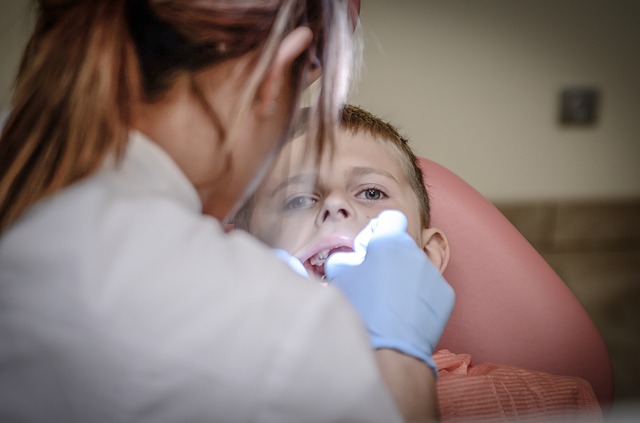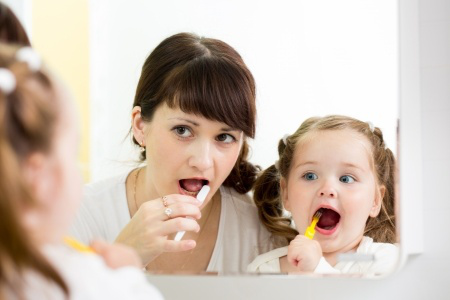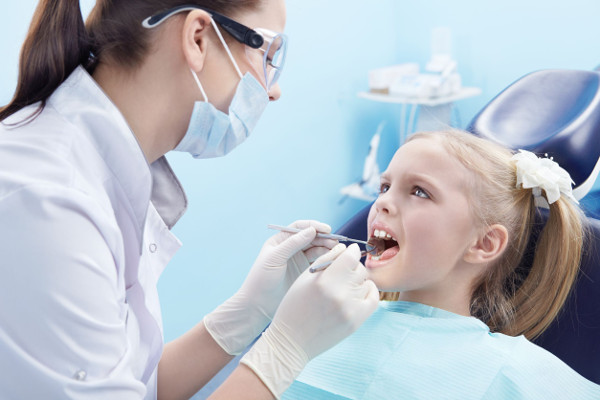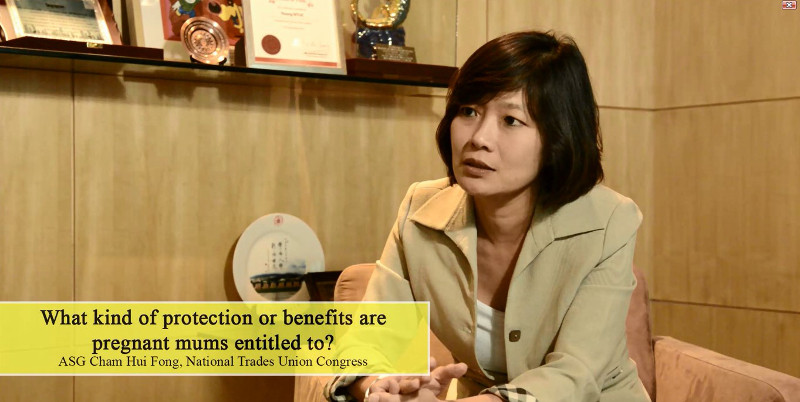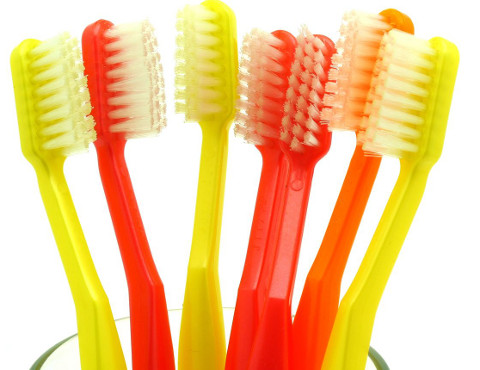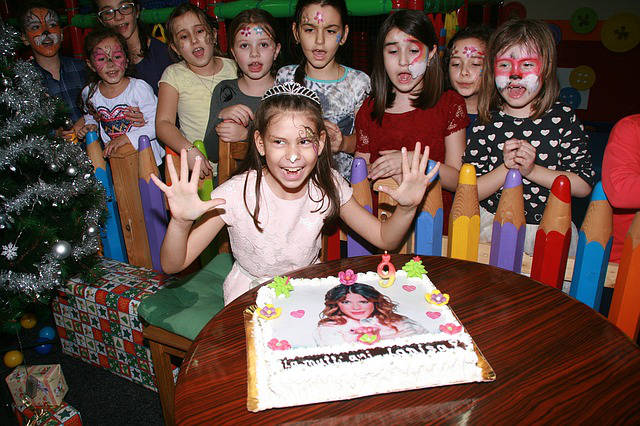The answer is dental decay, more accurately known as early childhood caries (ECC). Yes, decay is an infectious disease. In Singapore, a quarter of all 3-year-old children are affected, and this number rises to half of all children aged 6. We know that poor oral hygiene and high consumption of sugary foods and drinks is the chief cause of ECC in children. But the latest research from the UK and US has shown a link between a mother’s stress levels and her child having ECC as well.
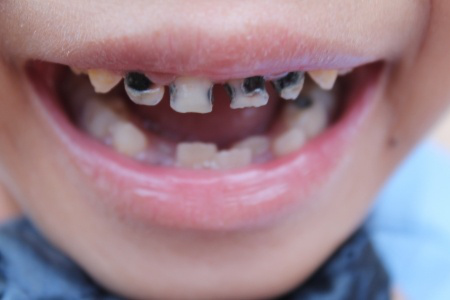
What is early childhood caries (ECC)?
ECC is a disease process whereby bacteria in the mouth digest the sugars and carbohydrates that stick to a child’s teeth after a meal, producing acid. The acid erodes tooth enamel, eventually causing cavities to form on the teeth surface. The cavities get bigger as they are filled with more acid-producing bacteria, eventually causing the teeth to rot and turn brown.
A mother’s stress can lead to her child’s tooth decay
The findings, which were published in the American Journal of Public Health, come from a study that analysed the data of 716 toddlers ages 2 to 6. Biological stress markers from mothers were first analysed, then their children were later dentally screened for the presence of ECC. It was found that mums with increased levels of biological stress markers (indicating higher stress levels) had children who were significantly more likely to develop ECC.
In order to gain further insight into this finding, the study sought to seek association between maternal stress and care-taking behaviours such as dental visits, breastfeeding and daily breakfasts. Unsurprisingly, highly stressed mothers were less likely to bring their children for regular dental check-ups, which resulted in most dental decay going undetected until the screening.
The study also found that mothers who displayed high markers of stress were significantly less likely to breastfeed their children and that ECC was almost twice as common among children who were not breastfed. In addition to this, children more at risk of ECC was found to have been not regularly fed breakfast.
An explanation to this is that children who are not breastfed or not regularly fed breakfast may be over-reliant on infant formula milk for their daily nutritional needs. Most of the formula milk available is high in added sugars, and frequent exposure to this, especially through a bottle at night, causes the formation of ECC on teeth.
Although rotten baby teeth eventually do fall out, it has been shown that the biggest predictor of dental decay in adulthood is the presence of ECC in childhood. In addition, healthy baby teeth are needed for children to properly smile, eat and speak.
Baby teeth are also crucial in the maintenance of proper dental spacing for the permanent teeth to grow into their correct positions. Toothaches in rotten baby teeth may lead to dental emergencies, poorer quality of life and unpleasant dental visits.
Expert’s notes
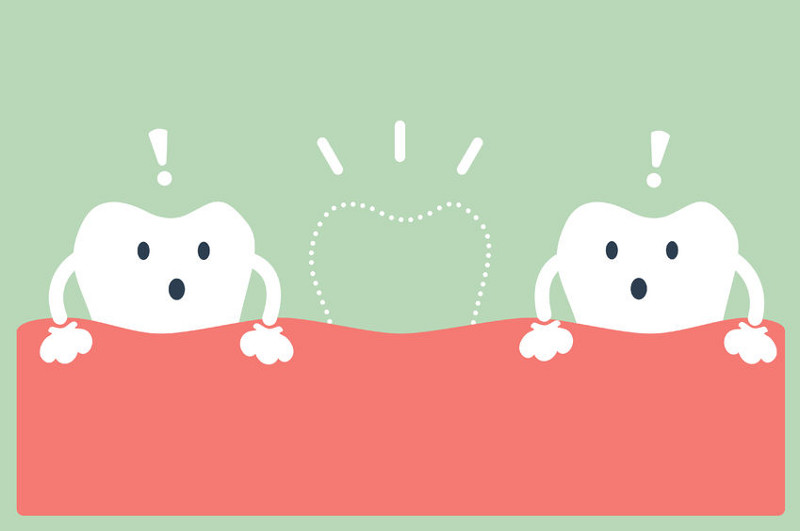
Life in Singapore is fast-paced, which can easily compound the stresses of early motherhood. Here are pointers unique to the local context.
1. Breastmilk is best for baby in terms of nutrition
However, breastfeeding and weaning a child off breastmilk is a personal act, which may sometimes involve a complex range of decisions mothers are faced with. Although the study pointed to children who were not breastfed have a higher prevalence of ECC, a strong contributing factor to this could be the use of infant formula milk or worse, a sugary beverage such as juice concentrate, as an alternative drink of choice during early childhood. When consumed frequently, especially through a bottle before bedtime, the added sugars in these beverage coat the child’s teeth and start the disease process of ECC through the night.
2. Children not being fed breakfast by their mothers were found to be at higher risk of ECC
In Singapore, children tend to have more than one caregiver (usually a domestic helper or grandparent), as mums are busy working. The lack of consistent supervision during breakfast by the mother may be unavoidable, but educating the caregiver on how to feed children in the morning is possible. Generally, foods with high sugar contents should be avoided for breakfast, such as cookies, biscuits, and chocolates. Our local breakfast range also contains many hidden sugars in the form of chocolate spreads, kaya, sweetened soya milk and bread with sweetened fillings such as red bean paste. Feeding these regularly to children will predispose them to tooth decay.
3. Higher decay rates were found in children who did not have regular dental visits
This remains true in any country or context. It is recommended that the child’s first dental check-up be done by the age of one when the first teeth have erupted. This is because ECC may affect teeth from the moment they come into the mouth. Early and regular dental visits are vital in detecting ECC in the initially reversible stages, as well as equipping parents with the knowledge and tools for tooth decay prevention all throughout their child’s life.
Motherhood is stressful; there is no doubt about that. Although an association has now been found between maternal stress and children’s dental decay, it is still entirely possible for the busy working mom to raise children in excellent oral health. Mothers should also make a conscious effort to take regular time off to relax and de-stress. This will undoubtedly lead to improved health and well-being for mother, child, and the entire family.
By Dr Terry Teo, Pedodontist (Paediatric Dentist), The Dental Studio (TDS) (A subsidiary of Singapore Medical Group).
This article was first published in The New Age Parents e-magazine.
Like what you see here? Get parenting tips and stories straight to your inbox! Join our mailing list here.
Want to be heard and seen by over 100,000 parents in Singapore? We can help! Leave your contact here and we’ll be in touch.






































